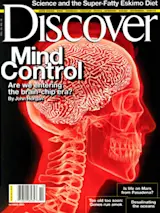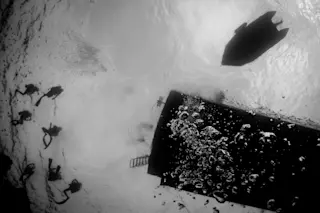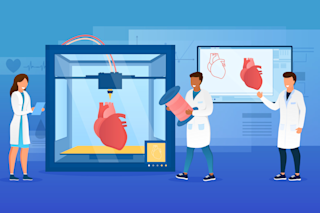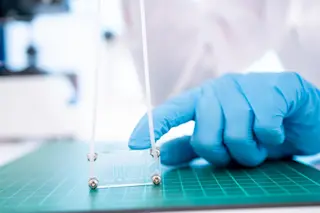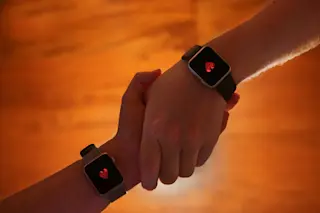Thinking beyond Jay-Z and Coldplay, researchers at Ohio State University have turned a standard compact disk into a biochemical laboratory. Their specially designed CD completely automates a commonly used assay for classifying HIV and some cancers, eliminating many tedious steps and producing results in one-tenth of the time.
As early as four decades ago, researchers at Monsanto tried to use centrifugal force to push liquids through a series of chambers on a plastic disk, says L. James Lee of Ohio State. His updated “lab on a CD” contains a series of wells and channels, each no deeper than the width of a human hair. Blood or cell samples are placed in one set of the disk’s chambers. Test chemicals are then mixed sequentially by changing the speed that the CD rotates: Solutions in wells closer to the outside move outward at lower rotation speeds, while those closer to the center ...


